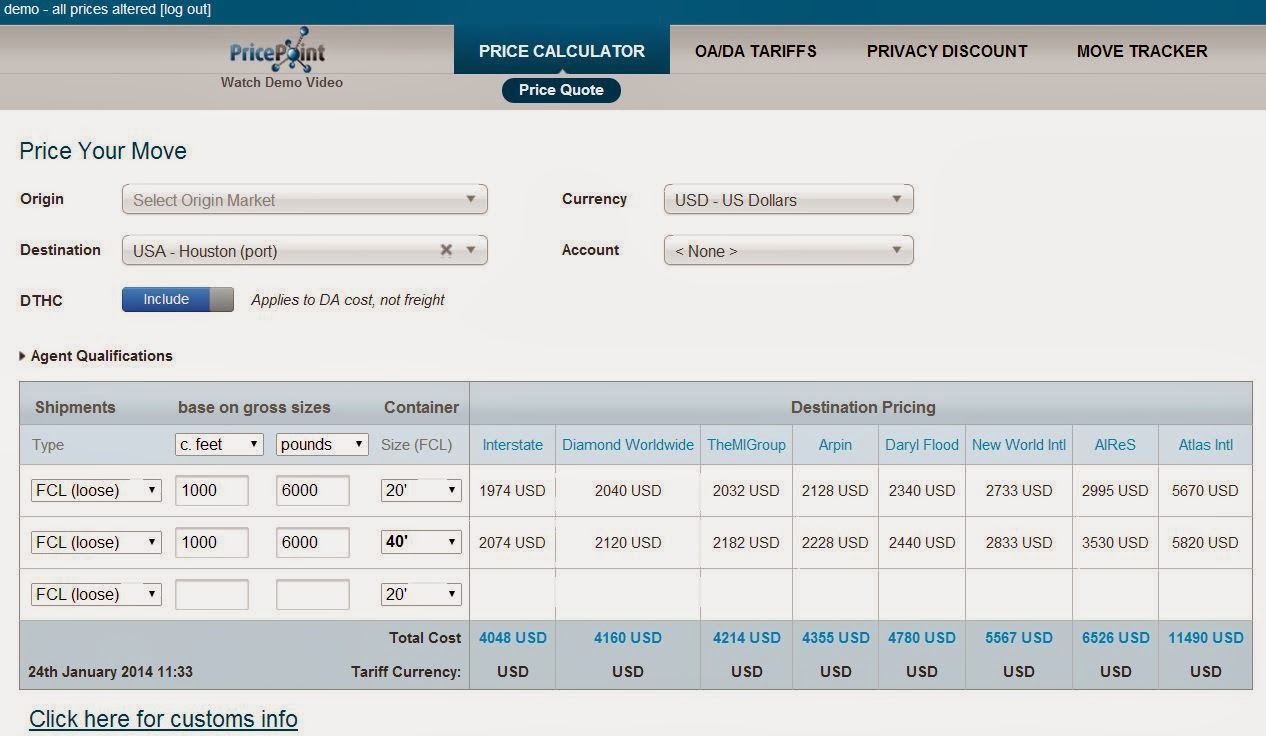As part of the soon-to-be-released freight quote capability, we have also added a container size selection to the calculator. Previously PricePoint would assume the container size based on volume input. That is still the case, but you can now manually override the container size if necessary.
We've tried to be thoughtful with the UI in terms of preventing potential conflict between the assumed size and the override, but let us know if any frustrations arise in daily use. Basically, once you manually select a container size, it will remain in place unless you go back into the volume field, which can re-trigger the automated size assumption. This is why we placed the container size field on the far right end.
 |
| Note: all prices altered to protect agent price privacy |



